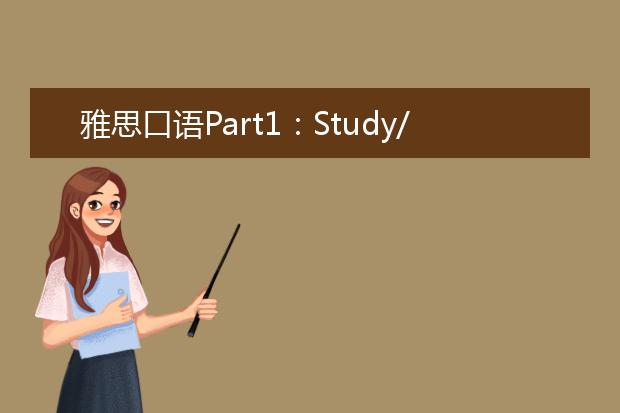work
1.Do you work or study?
I graduated a few years ago and I’m now in full time employment.
2.What is your job?
I’m currently an English teacher working for the British Council in Ho Chi Minh City.
3.Why did you choose that job?
I was previously a lawyer and found it to be really stressful and never had any free time, so after quitting that job I thought teaching might be the complete opposite of being a lawyer, you know not as stressful and more time off.
4.Are there lots of English teachers in Ho Chi Minh City?
Oh yes! There is a such a big demand for English as a second language here and it’ s also quite a cheap place to live compared to many other big cities in Asia.
5.Do you enjoy your job?
Most of the time. It’s very rewarding to be able to help people every day and the students here are very hardworking and fun to teach, but you sometimes have lessons that do go so well and the money could always be better.
6.Do you get on well with your co-workers?
Yes, fine. I don’t really see work as part of my social life, so I don’t socialise with them, so I suppose I could be more friendly, but it’s just my nature to be a bit colder with
colleagues. I think it’s more professional to be that way.
7.What was your first day at work like?
There were lots of teachers starting at the same time as me, 10 I think, so we all had a big induction day. The more senior teachers ran workshops with us to familarise us with the different systems they had and then we went for a team dinner in the evening.
8.What responsibilities do you have at work?
All of the teachers main responsibility is to plan good lessons and then teach them to the best of our ability. On top of that we have several admin. tasks to carry out like mark homework, fill out attendance sheets and write reports.
9.Would you like to change your job in the future?
Yes, as I said before, I like working by myself, so I would like to be my own boss. I’ m currently developing my own website, so if it’s successful I will leave teaching and work on it full time. This will also give me more time to work on other projects.
10.What is your typical day like in work?
I normally have 2 or 3 classes in the evening and I start the day by doing all the planning at home. This normally takes between an hour or two depending on the lessons. I then take the rest of the day to spend with my family, before going to work around 3 to print off my materials and then I teach all evening.
11.What would you change about your job?
As with most English teachers, we have to teach what is on the curriculum and this can mean that you are teaching some things that are quite boring or not very useful for your students, so I would like to have more freedom to teach outside the syllabus.
12.What do you do?
Presently, I am working with Fox Traveller as a host for their show that involves travelling around India and discovering its culture and people. We already have covered the southern part of India and now we shall be moving towards the eastern part. The show will go on air in January next year.
13.What are your responsibilities at your work place?
My main objective is to make sure that we get the information required. So, for instance, if we are travelling to Mysore, instead of talking about the places everyone goes, I need to make sure we cover the places no one ever has. Like the best and the cheapest place to eat. It requires lot of research and I mostly go to the place 10 days before our team arrives.
14.How many hours do you work each day?
Well, we don’t have any particular routine. Sometimes the work demands us to work ten hours, sometimes more than that, sometimes less. So, it is all on the location and the time it requires to give us the required information. Also, for me this is something that I love, so mostly work doesn’t seems like work.
15.Do you enjoy your work?
Oh! I love it. The feeling that you get after meeting so many people and talking with them and realizing how happy they are after all the issues they have. I remember we went out to shoot a village in Mysore and initially we thought the people would be very unhappy because of the limitations they had, but to our surprise they were all very happy and it was fun knowing their ways of living.
16.If given a chance to change your work place, would you do that?
At present, my workplace is great for me. I am loving the people I work with and enjoy the work that I am doing. So as of now, I don’t see myself changing the place. But, may be after some time, if the work is getting repetitive or there is no more learning for me, I may change.
17.Is there some other kind of work you would prefer to do?
I surely love the work that I do, but may be if time allows, instead of hosting shows I would prefer writing about my experiences of the places I visit. May be because when one writes a lot more gets expressed which is not possible why saying things off in television.
18.If you could change your profession, what would you do?
Well, I think may be I will open a company that gives equal education rights to people. While travelling, I realized that there are so many children who don’t get education, and even if they get it is not of good quality. So, I will open a business that provides good quality education to people who cannot afford it.
Study
1.Do you work or study?
I’m currently a student at Queen’s University, Belfast.
2.What do you study?
I study law because it’s a really well thought of degree and I’m hoping to pursue it as a career in the future.
3.Is it a popular subject at your university?
Very popular, in fact it’s one of the most sought after courses. I think there are about 350 people reading law at Queen’s. I think lots of student’s parents want them to study law so they can get a good job after they graduate.
4.Do you enjoy studying it?
It’s such a huge subject that there will always be parts you like and parts you don’ t like. I find Human Rights fascinating because it can really make a difference to peoples’ lives. On the other hand, modules like Land Law and Equity are really boring.
5.Do you get along with your clas*ates?
Yes, they are all really great. Most people like to socialise together in the evenings and this makes us a very tight group. If you know someone socially, it is much easier to work together in class.
6.If you could change to another subject, what would it be?
I planned to study medicine, but then when I went on work experience I fainted at the first sight of blood, so definitely not that. I’m a real history buff and read books about World War 2 all the time, so I suppose it would have to be Modern History.
7.Do you plan to use the subject you are studying in the future?
Yes, I’ve already started to apply for jobs as a lawyer. We normally have to secure a job a year before we graduate and then work very hard to get a high overall mark. After that, I will probably do a Masters in law to become a specialist in one particular area.
8.What is the most difficult part of your subject?
You have to remember lots of legislation and cases and not only remember their names, but also how the affect each part of the law and how they interact with each other. Physically it can also be exhausting because we have to read very dense texts for a few hours every day.
9.What would like to study in the future?
As I said before, my favourite type of law is Human Rights, so I would like to do a masters in International Human Rights Law. it’s right at the cutting edge of my field and there are also lots of very high profile cases in the media, so it’s really exciting and something I would like to become an expert in.
10.Why did you choose your university?
Mostly because it is close to my hometown and most of my friends were going there. I kind of regret it now. It’s a great university, but because it’s so close to home it doesn’t give you much of a chance to experience new things and meet new people. If I were to choose again, I’d study abroad.



 2021年5月雅思口语新题part1:Study or work
2021年5月雅思口语新题part1:Study or work
 2021年1-4月雅思口语题库完整版part1:Study or work
2021年1-4月雅思口语题库完整版part1:Study or work
 2021年5月雅思口语新题part1:Study or work
2021年5月雅思口语新题part1:Study or work
 2021年1-4月雅思口语题库完整版part1:Study or work
2021年1-4月雅思口语题库完整版part1:Study or work
 2021年9月雅思口语必备题Part1:Study or work
2021年9月雅思口语必备题Part1:Study or work
 2021年5月雅思口语新题Part1:Study or work
2021年5月雅思口语新题Part1:Study or work
 2021年1-4月雅思口语题库part1:Study or work
2021年1-4月雅思口语题库part1:Study or work
 雅思口语part1全解析--work/study工作or学习
雅思口语part1全解析--work/study工作or学习
 雅思口语Part1:Study/Major/Work学习工作专业话题
雅思口语Part1:Study/Major/Work学习工作专业话题
 2022年1月雅思口语题part1:Study or work答案
2022年1月雅思口语题part1:Study or work答案
 山东雅思备考:雅思口语扣分点有哪些
山东雅思备考:雅思口语扣分点有哪些  雅思口语备考新题答案解析:向某人作出承诺
雅思口语备考新题答案解析:向某人作出承诺  雅思口语范文:如何准备雅思口语part1
雅思口语范文:如何准备雅思口语part1  一般雅思口语考试时间多久 雅思口语考试相关
一般雅思口语考试时间多久 雅思口语考试相关  掌握正确的雅思口语语法的重要性有哪些?
掌握正确的雅思口语语法的重要性有哪些?  雅思考试三分钟口语 雅思口语每个part时...
雅思考试三分钟口语 雅思口语每个part时...
 还有3个月多的时间就要英语四级考试了 但我...
还有3个月多的时间就要英语四级考试了 但我...
 7月份考试有哪些...
7月份考试有哪些...
 2023年8月16日西安雅思口语安排(雅思...
2023年8月16日西安雅思口语安排(雅思...
 4月可以考雅思吗?...
4月可以考雅思吗?...